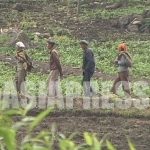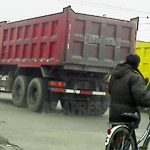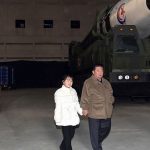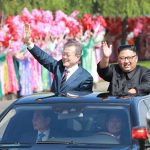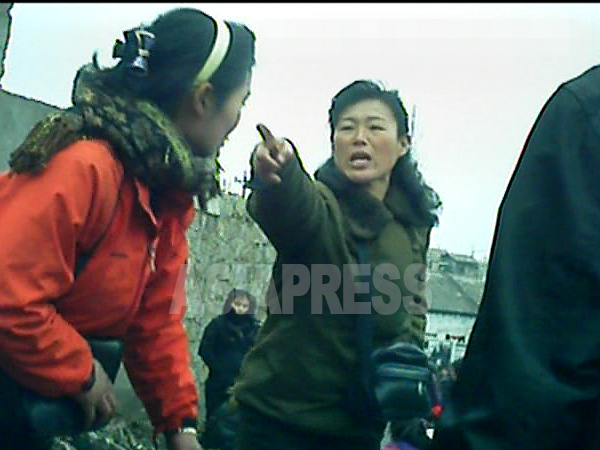
◆ “There’s cameras almost everywhere”
North Korean cities are rapidly installing surveillance cameras amid efforts to strengthen control and surveillance of the population as social disorder and crime are on the rise due economic troubles caused by the COVID-19 pandemic. (KANG Ji-won)
"Nowadays, there are more surveillance cameras on the streets and in places where people gather"
Reports such as the above have come from reporting partners in various parts of North Korea since late last year. In late February, a reporting partner in Hyesan, Yanggang Province, reported the following:
"Almost everywhere has surveillance cameras, including state-run stores, restaurants, markets, streets, statues of (Kim Il-sung and Kim Jong-il), buildings of the Ministry of State Security (secret police), the Ministry of Social Security (police), and the post office, but I still see them being installed every day."
As for the reason for the surveillance cameras, the authorities say that they are there to prevent various crimes and crack down on illegal behavior. Not everyone seems to believe them. The reporting partner explained an incident that happened in Hyesan around February 20 as an example. Below is an overview of the incident.
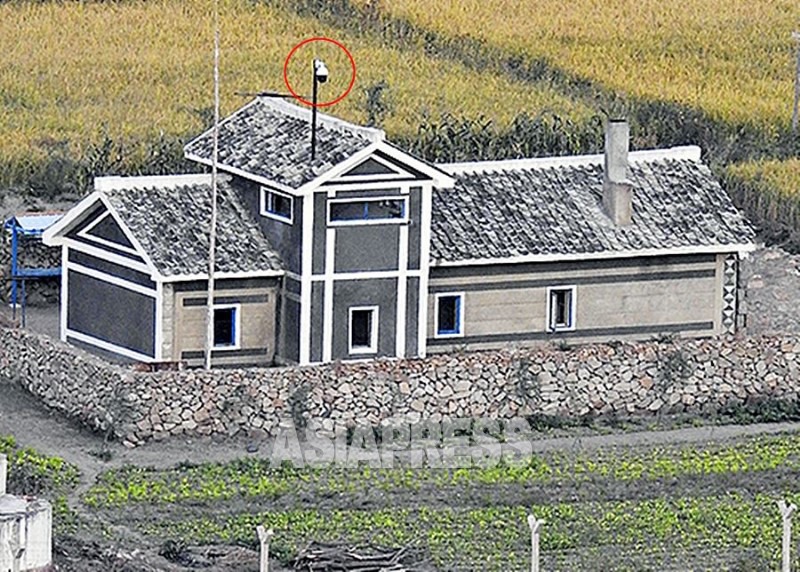
◆ Cameras are used to identify troublemakers and even lead to arrests
An old man selling sunflower seeds on the street near a market in Hyesan was stopped by a group of enforcers that confiscated his goods and dragged him away. Onlookers spewed insults at the enforcers, who were pressured to return the sunflower seeds and left with a warning that he should not sell in the neighborhood again.
The next day, the six people who had been shouting at the scene of the disturbance were called to the local security office. They were accused of disturbing the peace and made to write letters of self-criticism. The six people were identified from surveillance camera footage, locals said.
"I think they want to monitor everyone with cameras instead of preventing crime. If you criticize or cause a disturbance in a crowded place, the goal is to catch the ringleaders and the people who caused the disturbance."
◆ Electricity shortages are a barrier
In China, it's well known that the number of surveillance cameras on the streets has increased significantly in the past decade. North Korea, on the other hand, has been more vigilant in monitoring its citizens than China, and while there have always been cameras at key security points such as statues of Kim Il Sung and Kim Jong Il and along the border, there hasn't been much expansion of camera coverage on the streets.
This may be partly due to the lack of funding to import the devices from China, but, more likely, it’s due to power shortages. The capital city of Pyongyang aside, in provincial cities, households only have electricity for three to five hours a day. The power situation is even worse in winter, when the hydroelectric dams are covered in ice (the statue has a grid called the “Statue Line” that provides 24-hour power).
◆ A sense of crisis due to collapsing public order following the pandemic?
"The police have a new department that specializes in managing surveillance cameras. Companies are also installing many on their own. There are so many of them nowadays that you always feel like you're being watched."
While it's hard to imagine that all of the surveillance cameras are up and running 24/7, it's clear that the authorities are rushing to install them. The reason behind this is likely due to the economic troubles following the 2020 pandemic, which has led to a spike in crime and disorderly behavior in many places. Authorities have frequently issued strong warnings to people over the past few years that they will not tolerate crime. Since last August, 11 men and women were publicly executed over the course of three separate executions in just four months in Hyesan.
※ ASIAPRESS communicates with reporting partners through Chinese cell phones smuggled into North Korea.
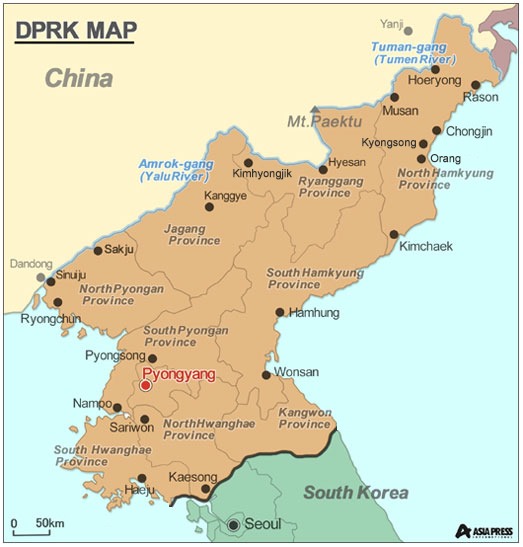
- <Inside N. Korea> Fights and even robberies: The authorities troubled by groups of ex-soldiers…Soldiers are placed in construction teams to reintegrate into society… However, men who serve for 8 years miss out on their youth
- <Inside N. Korea> Wigs, fake eyelashes emerge as a driver of exports abroad, but laborers work in very poor conditions
- <Inside N. Korea> Efforts to implement the“20x10 policy for regional development” begin…As people are mobilized to construction projects, complaints start to emerge
- <Inside N. Korea> Kim Jong-il birthday festivities smaller than in the past…special rations reduced due to lack of funds…focus more on labor mobilizations, with some events canceled
- <Inside N. Korea> S.Korea is the enemy…Trends after Kim Jong Un’s “anti-unification policy” announcement (1) People are surprised and confused

